24, THE MALL, DELHI CANTT…NOW, and in 1953-55
Gatecrash!
The only way to get rid of temptation is to yield to it…
As we were driving past 24, The Mall in Delhi Cantt, I had an irrepressible urge to enter the house, uninvited and unannounced. It was a bright Sunday morning, and occupants of the house were entitled to a relaxed day.
Sixty odd years ago, during 1953 to 55, we had lived in this bungalow, and I wanted to go down memory lane. Throwing discretion to the winds, we entered. Col VN Shukla, the current occupant forgave our trespass, and permitted me to take some pictures. The building and the precincts are much the same as they were, when we lived there.
Built over a four-acre plot of land, this house would be the envy of the richest and the most powerful Indians. Considering that this house was already thirty or forty years old, in 1953, I think its current age would be close to a century.
Last week, I discovered a few 60 year old pictures of the house. And they refreshed my memory. In retrospect, I think that a lot has change during these six decades. The visible similarity between what we see now is an illusion. In actual fact, a new form of life has evolved. The old civilization is gone with the wind!
Before I take you back in time, let me show you a few glimpses of what we saw, and how it compares with what life was like, when I stepped into my teens, in 1954.
The front of the house is exactly as it was in 1953. I have a clear memory of every inch, especially the veranda which was nice and large
The circular drive-way was designed such that the vehicles did not have to reverse. It must be remembered that when this house was built, they horse drawn carriages, which did not have a reverse gear.
Another view of the circular lawn
This picture is taken from the house, and shows the size of the lawns. We had enough play fields to play cricket and football!
It is time now to meet our gracious host, Col and Ms VN Shukla. They have just one child. And so, the total number of people in the house is just three.
The house, inside has changed a lot. The floors are tiled, and the air-conditioners suggest that the occupants do not have to sleep outside, under mosquito nets as we did during the summer!
The drawing room is as it was. The fire-place is intact, but no longer used. Electric heaters have taken over!
The kitchen and the bathrooms have metamorphosed. The wood-work is the only remnant of the old times.
At the end of our tryst with 24, The Mall, I managed to get a glimpse of the ‘rear side of the bungalow. There, we had a flourishing kitchen garden and a shed for our buffaloes. What I saw was two acres of shrubs and grass. I neither saw any men or animals. And as far as I could see, there were no servant’s quarters at the far end.
*
Part II. Down Memory Lane
We moved into this house during the summer of 1953, and left it in Dec 55. I was old enough to remember the period vividly. Recently while going through the old family albums, I discovered a few pictures, and with their help, I re-created the scene. In these sixty odd years, life has changed a lot. The major differences are:
-
First and foremost, the number of occupants has decreased. The number of children per family in that era was four to seven. In our case, we were four siblings, and our grand mother lived with us. We also had many guests and visitors. During the summer vacations, the number of person dining together could exceed a dozen.
-
We had two buffaloes and a kitchen garden to produce fresh vegetables and animal fodder.
-
There was no sewerage system, and so, one sweeper had to be on duty to remove the night soil the whole day.
-
We had a row of servant quarters. They had a ‘service lane’ behind their quarters, and so they never entered through the main gate. Indeed, they were very useful.
-
We had enough children to make full use of the ground and the lawns to play.
To tell the tale I have gathered a few pictures of that period.
This picture is dated Dec 1955 and shows the family
And this is our grand-mother. Our father had purchased a ‘charkha’ to keep her busy. During the pre-partition days, most women spent their leisure time, spinning yarn out of cotton.
This is a picture of that circular patch seen in the coloured pictures in Part I. Here, we are playing ‘musical chairs’ during the birthday of my brother (Now Brig Retd) Surinder.
And this is Surinder, swinging away to glory !
And here, Surinder is enjoying a ride on one of our buffaloes
Surinder cutting his birthday cake in 1954. He was ten years old, then.
The Aggregate Quality of Life
We had a very happy childhood. We did not have many of the modern gadgets and devices, but we did not miss them. Children went to school in the near vicinity, and most of us either walked the distance, or used bicycles. Our father had a car, but it was used sparingly. The word pollution had not been coined, and traffic accidents were rare. Life was simple, but many of our activities were labour intensive. And therefore, obesity was uncommon. Servants lived in slum-like conditions, and I used to feel very sorry whenever I went to their quarters. I think the opening paragraph of ‘The Tale of Two Cities’ sums it up very well.
It was the best of times, it was the worst of times, it was the age of wisdom, it was the age of foolishness, it was the epoch of belief, it was the epoch of incredulity, it was the season of Light, it was the season of Darkness, it was the spring of hope, it was the winter of despair, we had everything before us, we had nothing before us, we were all going direct to Heaven, we were all going direct the other way – in short, the period was so far like the present period, that some of its noisiest authorities insisted on its being received, for good or for evil, in the superlative degree of comparison only.
-Charles Dickens
Part III PHOOL SINGH THAKUR
This narrative would be incomplete if I do not mention the story of PS Thakur. His father was an employee of the Air Force Station, and had only one child. He had managed to educate him, and he was my class-mate in the Government School which I attended. He used to shift from one house to another, to remain near the school. When approached, our father agreed to accommodate him. Impressed by the ability of the lad, he even motivated him to prepare for the NDA test. And Phool proved to be equal to the trust placed in his capabilities. He joined XX Course and was in the Fox Squadron.
I lost track of him in life, but my course-mate, Brig Madan Dewan (XIX Course Able Sqn), ASC, told me about him. Phool Singh passed away, a few years ago, but his wife and son are in touch with Madan, and at his instance, they came to see me. I was glad to see that the family is doing well. I owe much of what I learnt about social disparity to Phool. And I think our father deserves the credit for this one good deed.
Here, I wish to end this piece with a picture of Madan Dewan, as he looked in 1954. This was taken on an NCC camp, and he is standing with his mother and sister. Our course-mates may be able to recognise him!
Brig Madan Dewan (XIX Course A Sqn) ASC, seen with his mother and sister
Life in the Servants Quarters
Thanks to Phool Singh, I got a good insight of the life in the servants quarters. There were eight rooms in a row. And there was a universally accepted hierarchy. The cook and the bearer spent all their time with us, and they also ate with us. They were the highest in the pecking order. Then came the gardeners and the washer men. At the end of the spectrum were the sweepers.
They had no toilet and there was no electricity in their rooms. Two taps served their need of water. Of these one was exclusively used by the sweepers. They defecated in the fields around and bathed in the open. Some servants lived alone; the others had their wives and children, all cramped up in a single room. The condition of those living with large families was similar to what we see in the slums. Their children did not go to school, and began to help their parents as soon as they were old enough for the job.
The Tailpiece
Houses of this kind are being phased out, slowly but surely. Sixty years ago, most officers lived in the luxury of such bungalows. But we can no longer afford this luxury. Most of the other houses in which we grew up have been demolished. It is only a matter of time when the rest will disappear. In Delhi Cantt, I am told that the servant quarters have been razed to ground. The lawns are mowed by a jungle-gym, and so there is no need for ‘working parties’.
Indeed the most revolutionary change has been caused by the sewerage system. The ‘untouchables’ are no longer condemned to carry the night soil on their heads.
And children go to distant schools, and therefore no one plays on those spacious lawns. There are no buffaloes and few kitchen gardens and no one sleeps out in the open, under mosquito nets.
The old civilization in which we grew up is ‘Gone with the wind’

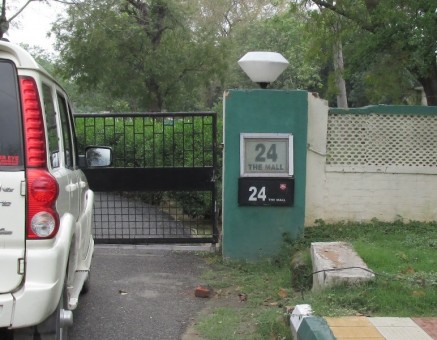
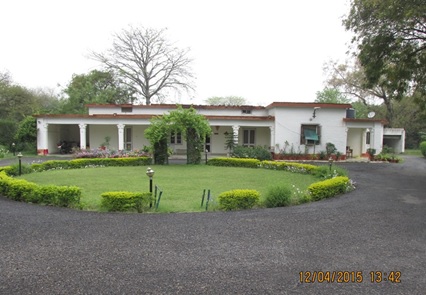
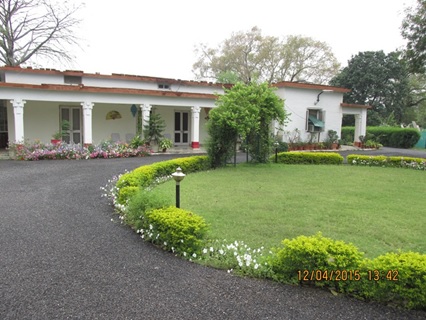
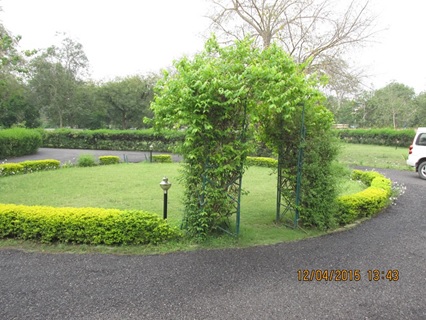
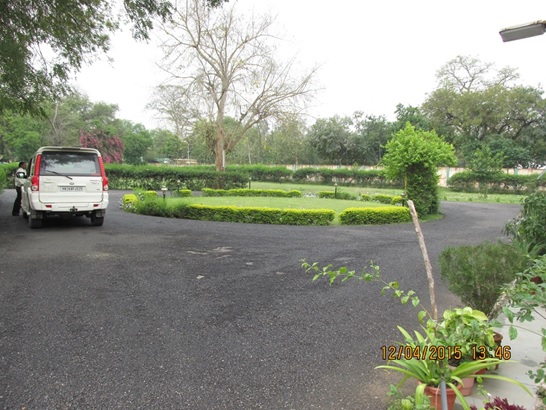
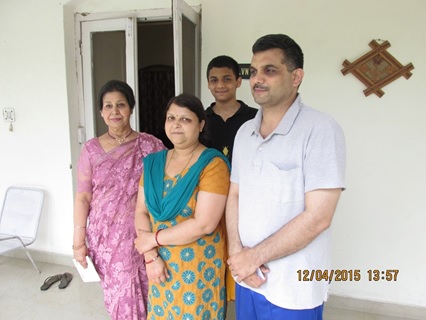

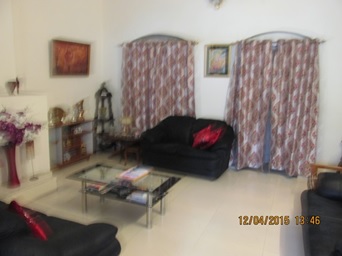
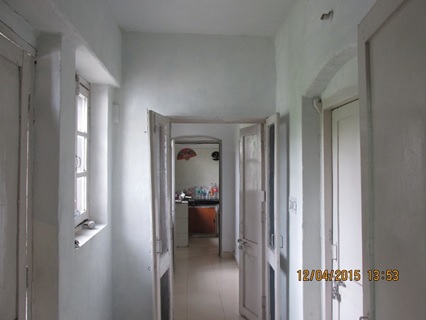
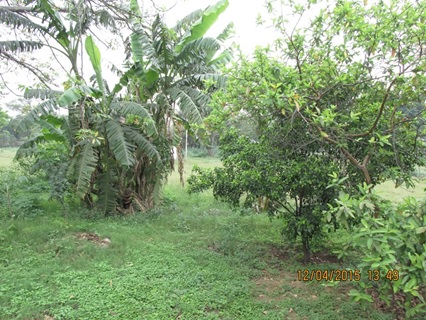


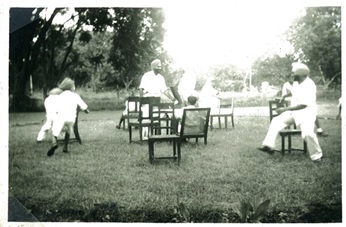









refreshing moments of Delhi cantt, one of the best location in Delhi for green natural environment, Delhi cantt always win best cleanest area in delhi, Special thanks to Station Hq delhi area / and Delhi cantonment Board
Lovely words choose to narrate whole story, hope to get more from you soon
I enjoyed reading it,so nostalgic.It triggered a walk down the memory lane.It took me back to preindependence days when I had my first experience of staying in an Army Bungalow as a five years old kid.It was at Fort Sandeman in Blochistan with NRS at Quetta.My father was serving in the Bn stationed there. Ours was the only family in the Bn.The bungalow was massive with very high ceiling.We had our own Chasme Shahi a spring running through the bungalow.It had crystal clear water.There were a lot of fruit trees.There was no regular school .So I went to the school in the local mosque.Fast Forward from 1946 to 2001.After 55 years I was the occupant of FSH Devlai.This Bungalow has a history of its own extending over 150 years.I also remember fondly our stay in West Grove Bungalow at Wellington in 1991.No 1 Bakloh was a Special place with a dream view of hills on one side and plains on the other side.A leopard was shot in No 8 by John Masters.The incident is narrated in his book ‘Bugles and a Tiger’.No 8 Bakloh is gone as it was marked for demolition.
Avtar,
You have put your finger on the right place!
I am also a great fan of John Masters.
SS
Sir,
Superlative memory lane.
those were the real good days.
I used to go to my Nana jis House next to ferozepur club. He was Sub Maj in
Ord Corps. Now a days dy GOC is staying in that house. Things have changed for good and bad on equal footing. Sir but to my mind those were much better days to which most of us will like to be back in if time rewinds because of simplicity and the respect which OG had.
jassal
Dear Surjit,
It was nice to read the story/history of 24, The Mall..What a difference it has made over the years.The Indian Army Officers were not far behind their Gora officers in their life in the Cantonments.But there is one thing strikingly different and that is the size of families. Earler we had a joint family and we accommodated even our friends. But today most of the families are nuclear and consist of only the wife and children.
2. Compliments to you for maintaining the album containing photos of 1953-54.
Rgards. Maj Gen Samay Ram
Third reading… reminds me
of our stay in 8Th THE MALL ROORKEE.
The mango tree was shaped like a mango .
My house was perhaps a bit bigger than the Comdt’s, across the road, with a slight difference.
It rained more inside, than outside.
When I told the Comdt- cum- Station Cdr, he laughed at me .
It was usual for me, all always laughed at me, so I enjoyed it.
But it cost me a ”’Dinner” to invite him and my 12 colleagues with families,
to keep him company. He saw what I said. It had stopped raining,
but in my Drawing room and dining hall, it was still trickling. He smiled and gave the MES 5000.00 INR ,then lots of money, to place an umbrella over my roof, till further orders to God
to stop raining..
God Bless him he was a lovely friend and master.1972-75
colls
Sir,
The NDA was a great leveller. There, the son of a peon and the scion of the Maharaja of Patiala sat together and ate the same food. They live, played and worked together.
The story of Phool Singh Thakur says many things that have not been written by you!
S J
Hi Surjit, a wonderful and nostalgic write up on the bungalows of the British era. I have stayed at 5 Polo Road when my father in law was the AAG Delhi Area. These bungalows were self contained for the ulility services. We had the cooks, sweepers, maiis and washermen all staying in the servants quarters.
I still remember the houses we stayed in Kasauli when my dad was posted there. Though he was not in uniform the houses were akin to the Cantonment bungalows. Plenty of space to play cricket or football. In fact one of the houses had such spacious rooms we used to play cricket in them. Plenty of servant quarters with a fleet of servants to look after your needs.
Some of these houses have lost their sheen after they were modified to the present day needs.
House in the hill stations had their own story to tell and of course the servants telling you of the spooks associated with each house.
Dear Gen,
Vow! Indoor cricket!!!
I wish you had a picture…it would be such a treasure.
SS
Hi Surjit, a wonderful and nostalgic write up on the bungalows of the British era. I have stayed at 5 Polo Road when my father in law was the AAG Delhi Area. These bungalows were self contained for the ulility services. We had the cooks, sweepers, maiis and washermen all staying in the servants quarters.
I still remember the houses we stayed in Kasauli when my dad was posted there. Though he was not in uniform the houses were akin to the Cantonment bungalows. Plenty of space to play cricket or football. In fact one of the houses had such spacious rooms we used to play cricket in them. Plenty of servant quarters with a fleet of servants to look after your needs.
Some of these houses have lost their sheen after they were modified to the present day needs.
House in the hill stations had their own story to tell and of course the servants telling you of the spooks associated with each house.
Dear Surjit,
Another story well researched and written.
Loved Phool Singh story. I must have met him as I was in India(item) Squadron and Fox waas just next door. Cannot put a face to that name.
I have seen some of the pictures of your family in another piece you had written. Family pictures make such good memories.
Keep writing,
Dave Sood
Dave,
Thanks.
I am still waiting for a piece from you. It is long overdue.
SS
I lived in 66 Lodhi Road in 1949 and 1950. it was a beautiful bunglow. And we were plenty too. My father was a Lt. Col , my mother and me with 4 brothers. i was no. 2, just 9 years in 1949. My father Judge Advocate General of Western Command. General Karriappa visited our house for tea several times. We had a nice swing from a tree in the corner of the lawn. Jackals visited the lawn at night. We had a new cycle with a dynamo and a powerful light that we drove each night to compell the oncoming cars to dip their lights. The roads were empty and smooth. The 3 elder brothers, including self, were put in the boarding school St Georges School, Mossoorie in 1949. It was a great loving memory of the bunglow though we got very little time their, only during winter vacations.
Dear Jasbir,
Great hearing from you!
Do send us something about your life, with pictures, if possible.
Surjit
Dear Parmindar and General Surjit,
Indeed an absorbing recall. Gen Surjit Singh has a way with his pen/keyboard that grips the reader. Old photographs are a treasure.
Phool Singh Thakur was our (XX) course in NDA. He was 3181, F squadron (later renamed K Sqn in the reshuffle). He joined AOC. My last meeting with him in 1965 was an interesting happenchance. He was posted in Delhi Cantt and I was doing ADC to GOC Delhi Area. One day he was talking on telephone to a friend and our lines crossed. I recognised his voice and played a prank. I had the PA call him on that number to complain that the line was held up by him for so long that the GOC was upset. He was told that the old man wanted him to report to the ADC at once. Phool came rushing, perspiring and his nerve on edge. Was greatly relieved when he saw me sitting in the ADCs chair, a fact that had not been revealed to him by the PA.
He had actually been talking to a girl fixing an RV for the evening at some bus stand (we did not have personal transport back then and bus number 3 that plied between Kirby Place and Fountains in Old Delhi was a common means of locomotion.)
This fact that he was talking to a girl had not even been (obviously) disclosed by me to the PA . We were all bachelors then and such activities were only normal. He gave me the whole subcheese. Finally, after making him sweat some, I revealed the whole truth, wished him a good outing in the evening. He gave me a mouthful. We both laughed and another round of tea and samosas was ordered.
Phool Thakur was an interesting person and most course-mates would recall him. God bless his soul.
With best regards,
Lt Gen Raj Kadyan
Chairman IESM
262, Sector-17A
Gurgaon – 122 001
Sir,
r u from EASY SQN
I was CSM 1958
Kumar Kohli then 15 NDA
Col SKKohli
Canada now
RGDS
Raj,
That is a nice one. I never knew you play pranks of this kind!
Phool was indeed an interesting man. His son has grown up into a fine young man.
Surjit
Thanks dear Major General.
Great memories.
Do they travel to the next life?
Thank you Sir.We have such bungalows in Secunderabad also like the Retreat where Winston Churchil stayed.
Rgds
Harikumar
Hari,
Now it is your turn to tell us something about your young days!
SS
Very Very absorbing the account of the events from 1953 on wards and the family photographs in B/W.
Anil,
Thanks.
Old pictures are a treasure.
I remember having visited your house …I think it was in Solan. Your younger brother is from the same course as my brother-in-law, RS Bhatti.
SS
Resp Dear General;
sir;
What a vivid and moving description of the Old and New !!
I got transmuted to the 50s while reading and visualizing the pictures.
Thank you much for sharing.
Regards;
KP
An awesome naration brings back memories of days gone by. Regards.
ASFIC
MAY GOD BE WITH YOU
SATISH
Hi Surjit ,
Thanks for sharing old memories .
I remember Phool singh Thakur in
F Sqn .Knowing him, we used to wonder
as to how he was selected for NDA .
With warm regards and best wishes .
ABS Sidhu
ABS
Yes.
Phool did take a long time to adjust to the NDA
He used to come to me whenever he felt emotional…
SS
Sir this is very beautiful….Those were the days.
In fact last week i had been to lucknow and had a similar urge to visit our house 10 M Dilkusha Garden where we lived in 1976 more than 40 years back.Our first son Samir was born there.
We also barged in and there was an AMC officer , a Lt Col staying there. They were also very nice to us… we went around the bunglow (I was a captain then) and it was almost the same even now.I was not wise enough to click a few pictures.. now i wish i had done that..if nothing else, it would have kept our memories fresh.
Thank you for sharing this.
Warm regards
Virender Kapoor
http://www.virenderkapoor.com
Twitter: @virenderkapoor
facebook: virender.kapoor.31
linkedin: virender kapoor
https://www.facebook.com/Virender-Kapoor-1156972917664195/?ref=bookmarks
Thanks Viren.
It is now turn to tell us a tale of old times, duly embellished with pictures!
SS
Dear 2997,
I read your story with interest. Almost all of us will have similar nostalgic stories. Only those who like to peep into their past will value this. I for one do remember the past and thank Waheguru that I am still around in reasonable shape when a number of our course mates have gone for ever.. A few incidents are never forgotten. One such incident of NDA days is mentioned below.
It was our first or second term in Easy sqn . One evening when you went for a bath , you had left your wrist watch on the chester of your cabin. Amarjit Behl and I decided to play fool with you to tease / teach you. We removed the watch. It was kept with me . When you found the watch missing you would have reported the matter to ? CSM or SCC. He in turn would have reported to Div or Sqn Cdr. Same evening during the fall- in before dinner , the CSM announced to the whole sqn that Cadet Surjit’s watch is missing. I promptly raised my hand and said it is not missing but is with me . The CSM would have reported to the Officer that the watch has been found with Daljit Madan . I thought the matter ended there .But to my surprise , this incident was written in my dossier that a stolen watch was found from me , for which I was warned despite my giving explanation . Amarjeet got scot free.
Regards,
3000
3000,
Yes. I have a vague memory of that incident.
Did you ever meet Phool Thakur?
2997
Respected General sahib,
Thanks a lot Sir, so nice learning about your own young days with your parents,siblings at Army Cantt. Bungalows. Happy seeing my own I I T Delhi batch-fellow Brig (R) Surinder Singh age about 12 years then. Great recall and excellent efforts by you digging relevant pictures, 60 years old; and writing for a wonderful record for ours and next generation.
I will be looking forward to meet Surinder Singh for our IITD Golden Jubilee Celebrations from 15th to 17th Dec in Taj Surajkund and then at IIT Campus. Really fifty years since we left Hauz Khas campus, time passes fast, and now we are grandparents. Our world is very different now, some great joyful things these days with hi-tech and simple connectivity on finger tips.
I always enjoy your crisp, relevant writings with facts and nostalgia of era gone by.
My warm high regards,
Sincerely Yours,
Satish Manocha,
Satish,
We are glad to re-discover you.
We have so much in common!!!
Surinder is very fond of you.
Surjit
Thanks for sharing Sir
Nice! nostalgia
Enjoyed…….Keep it up General.
Even I took my children to Rock View quarters at Air Force Stn Palam few years ago where they were born and early part of child hood was spent. More than me they enjoyed.
Regards,
Sqn Ldr OP Sikka
Thanks for the enjoyable walk down memory lane with you.
My father in law was on the parallel road at 20 Polo Road, and Phool Singh Thakur and i were together at CVD Delhi Cantt in 1967, and he did mention his early days at Mall Road on a few occasions. He was then staying at Baird Place and I was then staying at 7 Church Road. (1967) .
Love & Light
Prem
18/Baker-Bravo
Demonetisation is likely to affect the life style in the armed forces, too. Therefore, it is imperative that one undertakes, the change with grace?
Well done General. If only there were pics to show the difference. You never know. You might find these in some archive..
Thanks, Madam.
We invite you to share an experience with our readers.
Surjit
My dear General,
Loved your write up on old cantonment bungalows—very aptly put !
During my dad’s service, we also had 3 years of stay in some of the best old cantonment houses—like you rightly said–fit for a king !
Some of our best cantonment stay was—Ranchi—Jullandhar—Srinagar—-Pune—-Wellington—Mhow—Ramgarh–Bareilly——-all lovely bugalows with vast compound area, green & clean environment. All this has fast vanished & its a great shame we could not preserve this heritage—even an old army hutment had a charm of its own without all the fancy jazz that goes on these days ! I still maintain this style of living but its not much appreciated because the scent & cosmetics is missing !!! Living in an old cantonment was a discipline in its self & if you went out of the area ,you stood out like a sore thumb & the civilians would be green with envy ! The old servants & domestics always had fantastic stories to tell about previous occupants of these houses—specially when British families lived in them. Today we use all kinds of fancy paints & chemicals to colour our walls—in those days there were standing orders given to the GE & MES to white wash the houses every year or when required & good old white wash really stood up to its name !
Thanks for taking us down memory lane & keep on giving us these nice articles.
Warm Regards,
Zal Kabraji.
Zal,
You are on my hit list to tell a tale of old times!
And tell us the secret of how Parsis retain their ethnicity and yet merge with us so well!
SS
Very enjoyable. The whole journey. How complicated our lives we have made now. Am lucky to own a bungalow in Kasauli cantonment Will be there in the summers End March onwards. When ever you come to kasauli visit us Will be honoured. It is called Denisford Estate( right next to HP Tourism’s Ros Common Hotel on the lower mall
Regards
Jagmohan Luthra
Very interesting, sir. Residence of comdt 512 abw still has roof tiles made around 1880s.
Sattee,
Would you like to share your memories?
SS
Sir,
Nostalgic, took me back to the Air House in Lucknow where we stayed in early 1970s. Yes, I too never went to the servants quarters. Only the cook and the bearer entered the house.
Mahavir Jagdev
Lovely piece , Dad
Enjoyed it thoroughly while I am stuck in the train at Ambala Cantt.
THANKS – HOW ABOUT A COFFEE TABLE BOOK – - – & – — MAY BE A DOCUMENTARY FILM – - FOR THE GEN NXT
I will do that. But you will have to join me in this project.
Congrats…we now have Dhanoa as the Air Chief. Is he related to you?
SS
An excellent piece for a journey down the memory lane. Most of us do have such experiences to recall. We too have some stories to narrate and I will revert back to your site to share at least one story.
Much to our pleasant surprise life in these bungalows is still more or less the same as we discover during our periodic visits to one such property. But sooner than later this is bound to change as land is getting scarce.
General you must keep writing to re-invigorate our interest in our past to think of those with whom we shared our time and life.
Ashok Coomar
Dear Sir,
I found this so inspiring, so I thought I should forward it:
Michael Jordan was born in 1963, in the slums of Brooklyn, New York.
He had four siblings and his father’s earnings were not sufficient to provide for the whole family.
He grew up in a poor neighbourhood. Exposed to mindless violence and heavy discrimination in the slums, he saw for himself only a hopeless future.
His father saw in Michael, a lost soul and decided to do something.
He gave Michael, who was 13 years old, a piece of used clothing and asked: “What do you think the value of this outfit would be?”
Jordan replied,”Maybe one dollar.”
His father asked, “Can you sell it for two dollars? If you can sell it, it would mean that you are a big help to your family.”
Jordan nodded his head, “I’ll try, but no guarantee that I’ll be successful.”
Jordan carefully washed the cloth clean. Because they didn’t have an iron, to smoothen the cloth, he levelled it with a clothes brush on a flat board, then kept it in the sun to dry. The next day, he brought the clothes to a crowded underground station. After offering it for more than six hours. Jordan finally managed to sell it for $2. He took the two dollar bill and ran home.
After that, everyday he looked for used clothing, washed and ironed it, and sold it in the crowd.
More than ten days later, his father again gave him a piece of used clothing, “Can you think of a way you can sell this for 20 bucks?”
Aghast, Jordan said, “How is it possible? This outfit can only fetch two dollars at the most.”
His father replied, “Why don’t you try it first? There might be a way.”
After breaking his head for a few hours, finally, Jordan got an idea.
He asked for cousin’s helpto paint a picture of Donald Duck and Mickey Mouse on the garment. Then he tried to sell it in the school where the children of the rich study.
Soon a housekeeper, who was there to pick his master, bought that outfit for his master. The master was a little boy of only 10 years. He loved it so much and he gave a five dollar tip. 25 dollars was a huge amount for Jordan, the equivalent of a month’s salary of his father.
When he got home, his father gave him yet another piece of used clothing, “Are you able to resell it at a price of 200 dollars?” Jordan’s eyes lit up.
This time, Jordan accepted the clothes without the slightest doubt. Two months later a popular movie actress from the movie “Charlie’s Angels”, Farah Fawcett came to New York for her Movie promos. After the press conference, Jordan made his way through the security forces to reach the side of Farah Fawcett and requested her autograph on the piece of clothing. When Fawcett saw this innocent child asking for her autograph, she gladly signed it.
Jordan was shouting very excitedly, “This is a jersey signed by Miss Farah Fawcett, the selling price is 200 dollars!” He auctioned off the clothes, to a businessman for a price of 1,200 dollars!
Upon returning home, his father broke into TEARS and said, “I am amazed that you did it My child! You’re really great! ”
That night, Jordan slept alongside his father. His father said, “Son, in your experience selling these three pieces of clothing, what did you learn about success?”
Jordan replied, “Where there’s a will, there’s a way.”
His father nodded his head, then shook his head, “What you say is not entirely wrong! But that was not my intention. I just wanted to show you that a piece of used clothing which is worth only a dollar can also be increased in value, Then how about us – living & thinking humans? We may be darker and poorer, but what if we CAN increase our VALUE.”
This thought enlightened young Jordan. Even a piece of used clothing could be made dignified, then why not me? There is absolutely no reason to underestimate myself.
From then on, Michael Jordan felt that his future would be beautiful and full of hope.
He went on to become the greatest basketball player of all times.
How can I increase my own value? I am finding it a very interesting thought. I am sure, you too, will.
Do have a splendid week.
Regards,
Gangadharan
(The story of Phool Singh Thakur inspired Gangadharan to send this tale to all his friends)
What a beautiful narration…..amazing…. During my tenure as GM (Prod) at 505 ABW,Gen Rajpal Singh, who was Col Adm then used to stay in this Bungalow.Station Canteen is the adjacent building.Much later we lived in 14 Church Road in the neighborhood.
Guljit Chadha
Surjit,
A very nice narration, reminds me & brings back nostalgic memories of a similar life at 39 the mall Ambala cant from 1941 to 1971 which was our bungalow
Akshay
An excellent piece as usual.
One more point that is evident is the devaluation of rank. In 1955 a Major occupied this house. Today it is a Colonel.
Yes. Thomas.
Those days, Major was a very big rank. As a ‘field officer’ Majors were entitled to ‘Salami Shastra’ if they passed by the Quarter Guard.
In many cases, even a Col has less privileges and authority than a Major of those times.
That is the price we have paid for the Cadre Reviews
Surjit
Dear Surjit,
Read your beautiful recalls, both, “24 the Mall” and “civilization….”.
March of time is Law of nature, this is why our learned ancestors called it KAL CHAKRA, which never stops.
When we got commission in Dec 1961, the concept of officer-ship was chivalry driven, mundane materialism was a lower thought, it is somewhat changed today.
That time I thought North Block and South Block in Lutien’s Delhi were the biggest Buildings and a marvel of architecture. Today in Noida there is a Mall of India, it is far more asthetically massive.
Kutub Minar was the tallest but now Burj-Khalifa is, in all, an Acme. And Dubai does not have a taxing regime.
And now we have US President elect Donald Trump, who finds it not so comfortable to move to White House. When faced with Security insinuation from the Establishment, he has agreed to shift to White House but his wife and children do not want to rough it out in White House.
There is an apt Sher which comments very well on the certainty of the march of time, “Sukun kahan hai qudarat ke kar-khne me ,sabaat ek tagaiyur ka hai zabane me.”
Regards
BD Mishra
Course Mate
The Army has shown us much…from bungalows to barracks, from trucks to trenches, we have lived in all of them. Forever aware that these are all transients.
Two feet on mother earth while standing and one leg on the ground while on the move! That is military training.
Readers Digest used to have a column ” My most unforgettable person “. That in my case has to be none other than our father Maj Balwant Singh whose photograph is displayed even now in the main verandah of Chetwode Hall in IMA…. an institue which in one year can change a man’s outlook till his dying day.
Brig Surinder Singh
Sir, As is your wont you have immortalised a Bunglow for all times to come. May I suggest nay a better word to use may I submit, this a fit contribution to Readers Digest after some editing.
And I am sure many more shall come up with nostalgic memories.
typo
for bahuji
read
”bahu rani ji”
dementia effect
may be
as age catches
we run faster
honestly
Thank you Surjit for the most enjoyable walk down memory lane. My pop-in-law used to stay on 20 Polo road in the mid to late fifties. Phool Singh and I were together at CVD Delhi Cantt 1967, he was at Baird Place and I at 7 Church Road. Wife and I would drive (Scoot) down Polo Road for old times sake. They were good days – while many changes have taken place for the better, many have taken place for the worse. Guess a balance has to be maintained? Keep them rolling bro, I enjoy reading your articles.
Nostalgic
Yes.
The only thing I Wish to add here is
my prediction has come true
”You are our KHUSHWANT Singhji
plus more…..”
Hope to see your
50th Marriage Anniversay
Gufta Guu due on 17 or 26 th Dec correct me
Our love and wishes to
you and bahoo ji..now
now General
I simple one
colls me
Many thanks for this trip down memory lane General Sahib. I recall my tea planting days. Many similarities between the life of a tea planter and an army man. One of them being the bungalows. I believe that the biggest change that happened is not the infrastructure but the attitudes. That is what changed the entire lifestyle.
As for sleeping outside under mosquito nets, we used to do that in my childhood and loved it. In the tea gardens that was not done because it was too cold and for the real possibility of a visit by a leopard or elephant.
Many thanks for this piece.
Mirza ji,
The world in which we grew up was different.
If our grand fathers could come back, they would feel they are on a different planet!
SS
During 1974 to 1979 i was serving in WAC. we stayed at 33, subroto park. A bungalow with a lawn in the front, open land on the side abutting the road, and plenty of land at the rear. there was a servant quarter in the corner. A christian family was living with 4 daughters. One was working for us. some one took initiative to grow cane. we did not know what do to with it.
I hardly paid enough salary to that girl. very dedicated girl. My mother came to live. she had parkinson. i did not have enough money to appoint a full time nurse. I was attending MBA classes in far away Delhi university. My mother lived there for few months. On a morning she passed away. i realised in the pursuit of career, further adding values, i had not spent adequate quality time with her.
Later i felt guilty. we were posted to
chandigarh. and i left Airforce in 1983. But i made it a point to visit that house every time i visited Delhi. i searched for Meera. she was working for some one in the diplomatic enclave. i gave her Rs 5000. and she shed tears and so also myself. i apologised to her for asking them to out of the lights at 10 pm as i was worried about the current bill. that was the fin put ancial condition and our attitudes. she had her old parents to look after. they must have suffered with heat. Today i feel guilty that i have split Acs in all our rooms in my house.
I am sorry.
During 1974 to 1979 i was serving in WAC. we stayed at 33, subroto park. A bungalow with a lawn in the front, open land on the side abutting the road, and plenty of land at the rear. there was a servant quarter in the corner. A christian family was living with 4 daughters. One was working for us. some one took initiative to grow cane. we did not know what do to with it.
I hardly paid enough salary to that girl. very dedicated girl. My mother came to live. she had parkinson. i did not have enough money to appoint a full time nurse. I was attending MBA classes in far away Delhi university. My mother lived there for few months. On a morning she passed away. i realised in the pursuit of career, further adding values, i had not spent adequate quality time with her.
Later i felt guilty. we were posted to
chandigarh. and i left Airforce in 1983. But i made it a point to visit that house every time i visited Delhi. i searched for Meera. she was working for some one in the diplomatic enclave. i gave her Rs 5000. and she shed tears and so also myself. i apologised to her for asking them to out of the lights at 10 pm as i was worried about the current bill. that was the fin put ancial condition and our attitudes. she had her old parents to look after. they must have suffered with heat. Today i feel guilty that i have split Acs in all our rooms in my house.
I am sorry.
During 1974 to 1979 i was serving in WAC. we stayed at 33, subroto park. A bungalow with a lawn in the front, open land on the side abutting the road, and plenty of land at the rear. there was a servant quarter in the corner. A christian family was living with 4 daughters. One was working for us. some one took initiative to grow cane. we did not know what do to with it.
I hardly paid enough salary to that girl. very dedicated girl. My mother came to live. she had parkinson. i did not have enough money to appoint a full time nurse. I was attending MBA classes in far away Delhi university. My mother lived there for few months. On a morning she passed away. i realised in the pursuit of career, further adding values, i had not spent adequate quality time with her.
Later i felt guilty. we were posted to
chandigarh. and i left Airforce in 1983. But i made it a point to visit that house every time i visited Delhi. i searched for Meera. she was working for some one in the diplomatic enclave. i gave her Rs 5000. and she shed tears and so also myself. i apologised to her for asking them to out of the lights at 10 pm as i was worried about the current bill. that was the fin put ancial condition and our attitudes. she had her old parents to look after. they must have suffered with heat. Today i feel guilty that i have split Acs in all our rooms in my house.
I am sorry.
During 1974 to 1979 i was serving in WAC. we stayed at 33, subroto park. A bungalow with a lawn in the front, open land on the side abutting the road, and plenty of land at the rear. there was a servant quarter in the corner. A christian family was living with 4 daughters. One was working for us. some one took initiative to grow cane. we did not know what do to with it.
I hardly paid enough salary to that girl. very dedicated girl. My mother came to live. she had parkinson. i did not have enough money to appoint a full time nurse. I was attending MBA classes in far away Delhi university. My mother lived there for few months. On a morning she passed away. i realised in the pursuit of career, further adding values, i had not spent adequate quality time with her.
Later i felt guilty. we were posted to
chandigarh. and i left Airforce in 1983. But i made it a point to visit that house every time i visited Delhi. i searched for Meera. she was working for some one in the diplomatic enclave. i gave her Rs 5000. and she shed tears and so also myself. i apologised to her for asking them to out of the lights at 10 pm as i was worried about the current bill. that was the fin put ancial condition and our attitudes. she had her old parents to look after. they must have suffered with heat. Today i feel guilty that i have split Acs in all our rooms in my house.
I am sorry.
RB
I am touched by your gesture!
You have a sensitive soul…
Surjit
Sir,
Nostalgic, took me back to the Air House in Lucknow where we stayed in early 1970s when my father was posted. Yes, I too never went to the servants quarters. Only the cook and the bearer entered the house. That era is long gone…. and what a golden era indeed.
MJ,
Thanks.
I may never have gone to the servant quarters, if it had not been for Phool Thakur.
SS